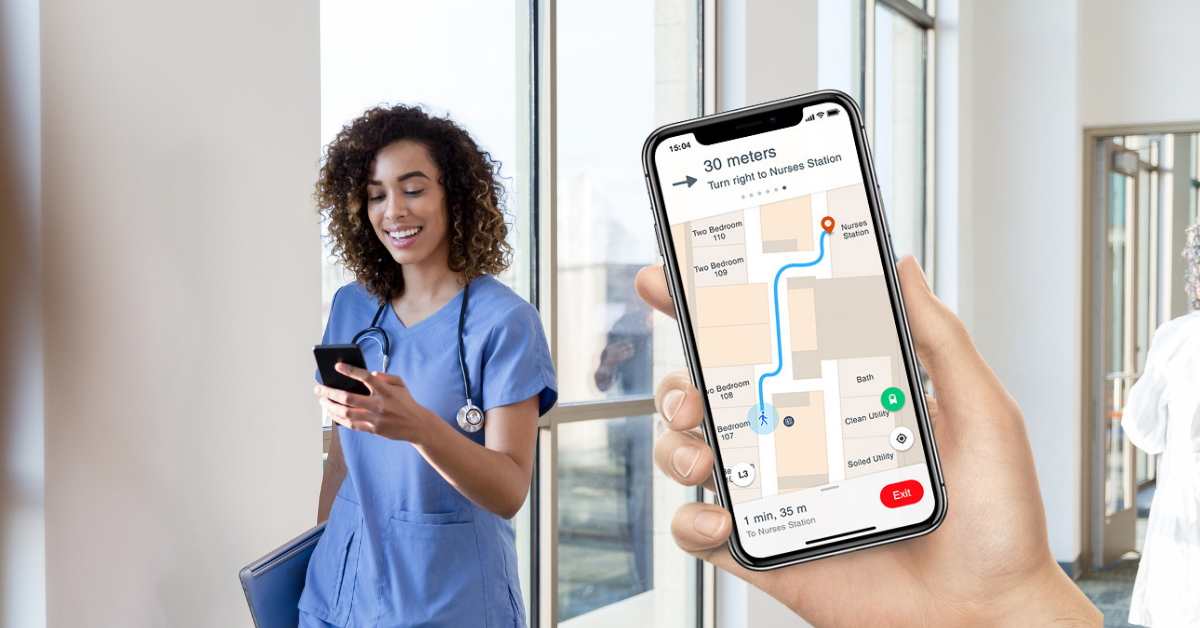Beacon Technology: Transforming Spaces into Intelligent Ecosystems
 Ipera AI
Ipera AITable of contents

Gone are the days when beacons were just guiding lights for ships at sea. Today, these unassuming devices are revolutionizing how we interact with our surroundings, from retail stores to sprawling hospital complexes. Let's dive into the world of beacon technology and explore how these tiny transmitters are making big waves across industries.
![]()
What's the Buzz About Beacons?
Beacons are small, wireless devices that use Bluetooth Low Energy (BLE) to broadcast signals to nearby smart devices. Think of them as little lighthouses, constantly sending out beams of data instead of light. These signals can trigger specific actions on smartphones or tablets, like pushing notifications or providing location-based information.
Fun fact: Beacons are one-way communicators. They're the chatty friends of the tech world, always talking but never listening. This one-sided conversation actually helps maintain user privacy, as beacons don't collect any information from the devices they interact with.
How Do These Little Gossips Work?
Beacon devices are remarkably simple in their operation:
They continuously broadcast a unique identifier.
Compatible apps or operating systems on nearby devices pick up this signal.
The app then determines its proximity to the beacon.
Based on this information, the app can trigger specific actions or display relevant content.
It's like a high-tech game of "Marco Polo," but instead of kids in a pool, it's your phone and a small plastic device playing hide and seek in a department store.
Beacons in Action: More Than Just Retail Therapy
While beacons made their debut in retail, they've since branched out, proving they're not one-trick ponies. Let's explore some of the coolest applications across different industries:
Retail and E-commerce: The OG Beacon Playground
Retailers were quick to jump on the beacon bandwagon, using them to send personalized offers and product information to shoppers. Studies show that beacon-triggered messages can increase the likelihood of a purchase by 73%. So the next time you get a notification about a sale on those shoes you've been eyeing, you can thank (or blame) a nearby beacon.
Healthcare: More Than Just Beeping Machines
In hospitals, beacons are doing more than just annoying patients with constant beeping. They're tracking equipment, guiding visitors through maze-like corridors, and even monitoring high-risk patients. It's like having a personal GPS and guardian angel rolled into one tiny device.

Indoor navigation using beacon technology in healthcare
Hospitality and Tourism: Your Personal Tour Guide
Museums and tourist sites are using beacons to bring exhibits to life. Imagine standing in front of the Mona Lisa and getting a notification explaining why she's smiling (spoiler: we still don't know). It's like having a knowledgeable friend whispering interesting tidbits in your ear, minus the awkward personal space invasion.
Transportation and Logistics: Keeping Tabs on Your Stuff
Beacons are making waves in logistics, helping track everything from shipping containers to individual packages. They can even monitor temperature and humidity, ensuring your ice cream doesn't arrive as a milkshake. It's like having a really dedicated stalker for your parcels.
Smart Cities: Making Urban Life Less... Urban
Cities are getting smarter, and beacons are playing a big role. They're providing real-time information on everything from parking availability to bus schedules. Soon, navigating a city will be easier than finding the TV remote in your living room.
The Bright Side of Beacons
Beacon technology isn't just cool; it's also surprisingly practical:
Cost-effective: These little devices are cheap to produce and run on minimal energy. It's like having a team of tiny, efficient workers that don't need lunch breaks or health insurance.
Enhanced experiences: By providing personalized, location-based information, beacons can make everything from shopping to museum visits more engaging and interactive.
Data goldmine: The information gathered through beacon interactions can help businesses understand customer behavior better. It's like being a mind reader, but less creepy and more data-driven.
Privacy: The Elephant in the Room
Now, before you start wrapping your phone in tinfoil, let's address the privacy concerns. Beacons themselves don't collect personal data. However, the apps that interact with beacons might. So, it's crucial to read those privacy policies (yes, all 50 pages) and manage your app permissions. Think of it as spring cleaning for your digital life.
The Future is Beacon-Bright
The beacon market is set to explode, with projections reaching a whopping $103.94 billion by 2030. That's a lot of tiny plastic devices. As beacon technology evolves, we can expect to see even more innovative applications across industries.
Subscribe to my newsletter
Read articles from Ipera AI directly inside your inbox. Subscribe to the newsletter, and don't miss out.
Written by
